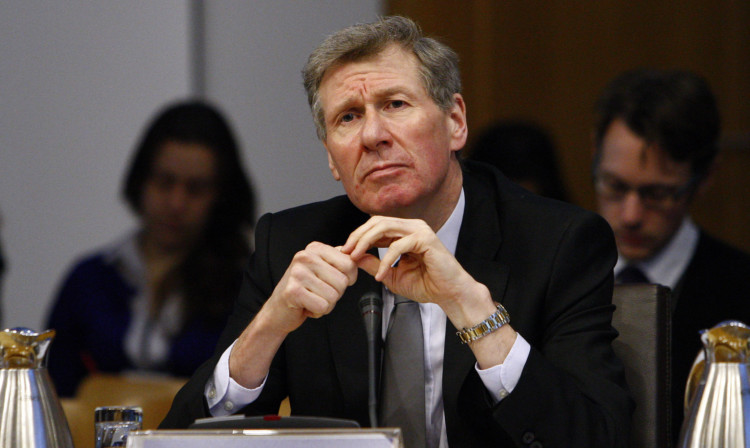Anonymity for people accused of certain serious crimes could be considered in order to protect them from being “tried by the media” before they are even charged, the Justice Secretary has said.
While the Scottish Government does not have any “formal policy” on plans to give anonymity to those arrested in relation to serious crimes, therefore barring their name from being published in the press, it is “happy” to explore such a move, Kenny MacAskill told MSPs.
Concerns were raised by Holyrood’s Justice Committee over the damage to potentially innocent people who are arrested but then released as it considered the changes to police powers of arrest set out in the Criminal Justice Bill.
The Bill contains measures to change the current scheme which draws a distinction between detention and arrest.
At present, police officers in Scotland can detain a person on suspicion of committing an offence, but must have reasonable grounds for believing that they are able to charge a person before they can arrest them.
In England and Wales a suspect may be arrested on suspicion of having committed an offence.
Changes contained in the Bill would see Scottish police officers given a similar “power of arrest in suspicion of having committed an offence”. An arrested person will then become “officially accused” when they are charged.
Calum Steele, general secretary of rank-and-file body the Scottish Police Federation, previously told the committee that the change could cause confusion among police offices and cause problems with public perception when a person is arrested.
Appearing at the committee in October, he said: “Police officers know the process of detention and the unlearning of that and the learning of something else is going to result in the inadvertent misapplication of the wrong pieces of legislation and information.”
Lessons should be learned from the murder in England of architect Jo Yeates, where her landlord Christopher Jefferies was arrested and smeared by the media but subsequently released, he said.
“I can’t speak for what the general public across the whole of the UK thought, but my sense from the subsequent furore surrounding it was that they thought this man was guilty because the terminology applied was ‘arrested’,” Mr Steele said.
Responding to this point, raised by committee member Elaine Murray, Mr MacAskill said: “I think those points relate not to statutory definitions of arrest and detention, but to media profile.”
He gave the recent example of the fraud trial involving Nigella Lawson, where the television cook’s personal life was scrutinised.
He said: “I don’t ever recall any prosecution against Nigella Lawson, but every time I saw the television I thought she was on trial. But that’s how matters were portrayed by the media.
“What remains sacrosanct is the presumption of innocence. If a person is arrested by the police they are presumed innocent until it is proven otherwise conclusively by a court.
“I think that is recognised by all in Scotland, although it doesn’t sadly always seem to be portrayed, sometimes by the media.”
Convenor Christine Grahame asked: “Do you think there may be room at some point for considering anonymity for accused parties in certain cases, as is provided to the principle witness, if we are going to move to arrested, (but) not officially accused, in certain very serious cases?”
She said there was “some traction” behind the proposal for anonymity, given that “people are tried by the media and have to live with it”.
Mr MacAskill said: “That is a matter I am always happy to look at because these things do have great consequences and effects.
“The difficulty is in a world of social media, even with a court order, if it’s coming from a different jurisdiction, if it’s available on Twitter or Youtube, it’s pretty hard to enforce.”
He added: “These are matters (on which) we don’t have a formal policy. There is a legitimate and understandable point raised by you.”
Mr MacAskill said the Government was happy to engage with the committee, the public, the courts and lawyers.
